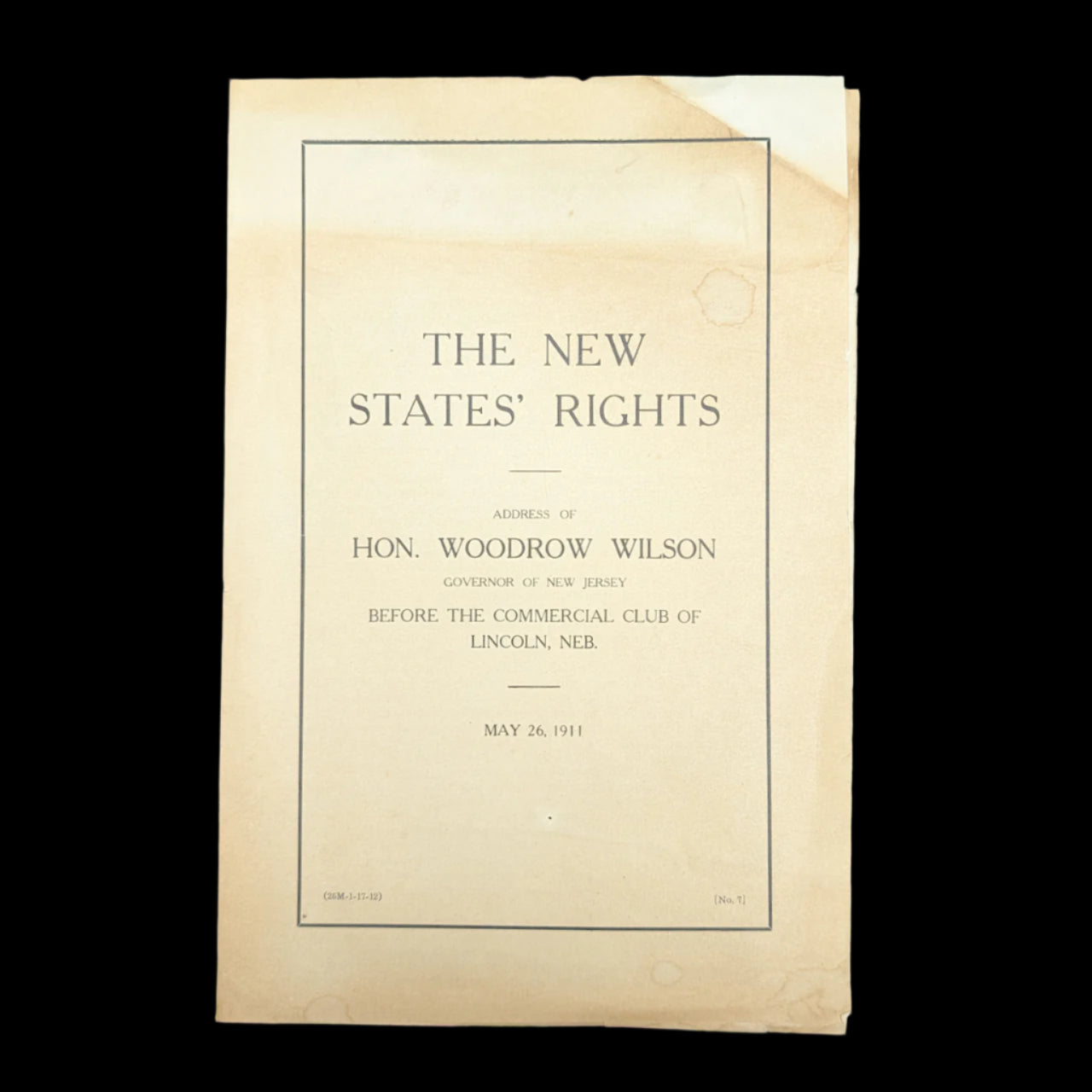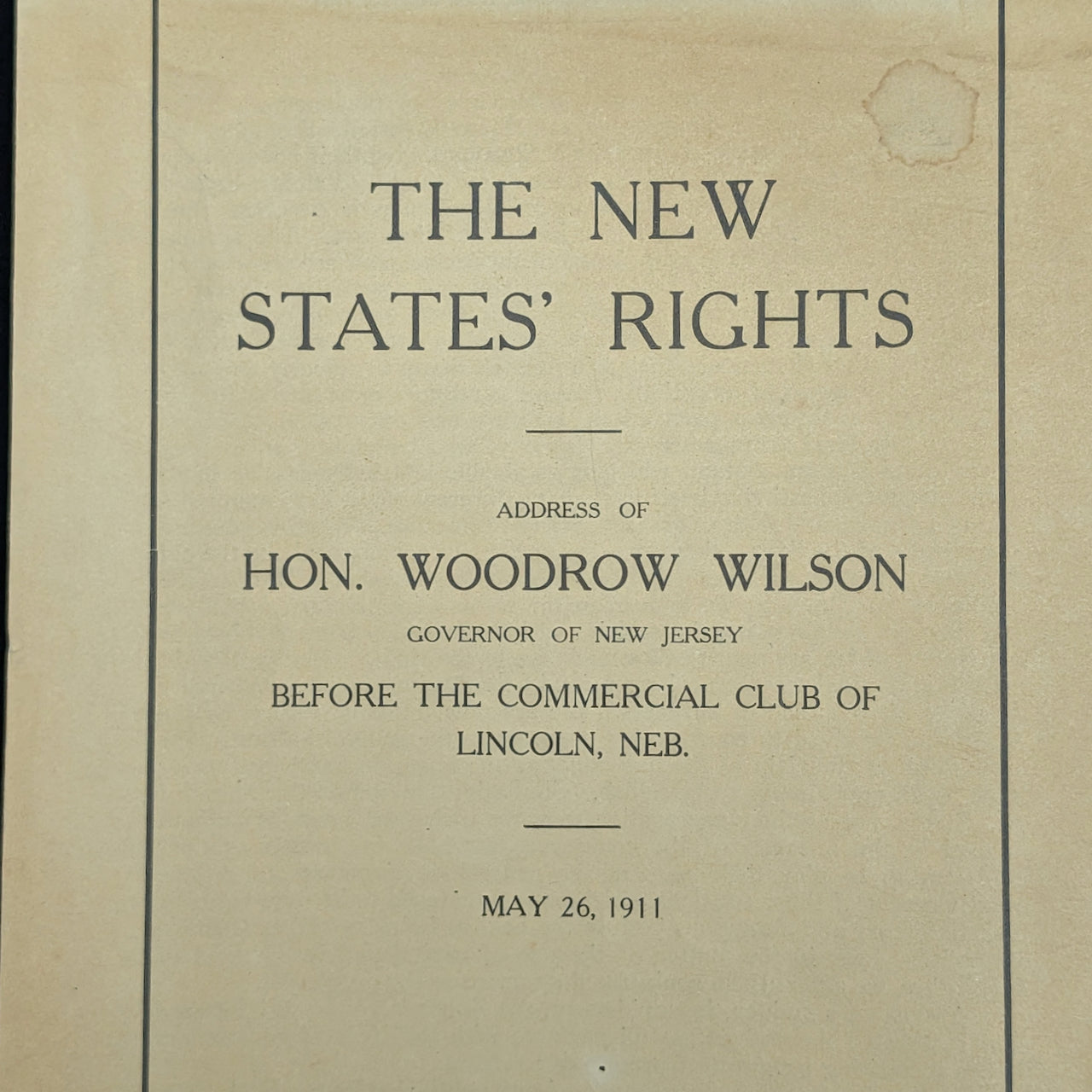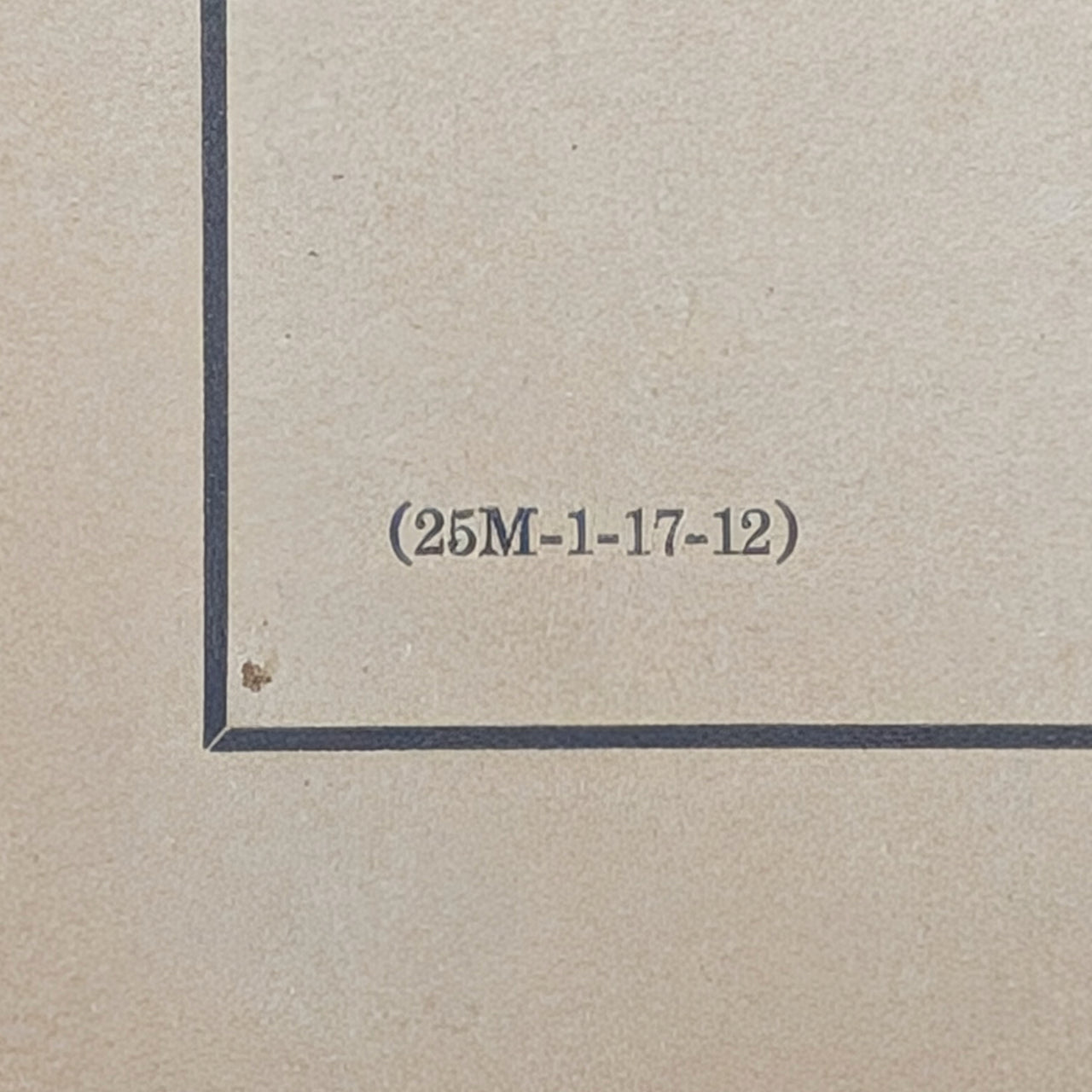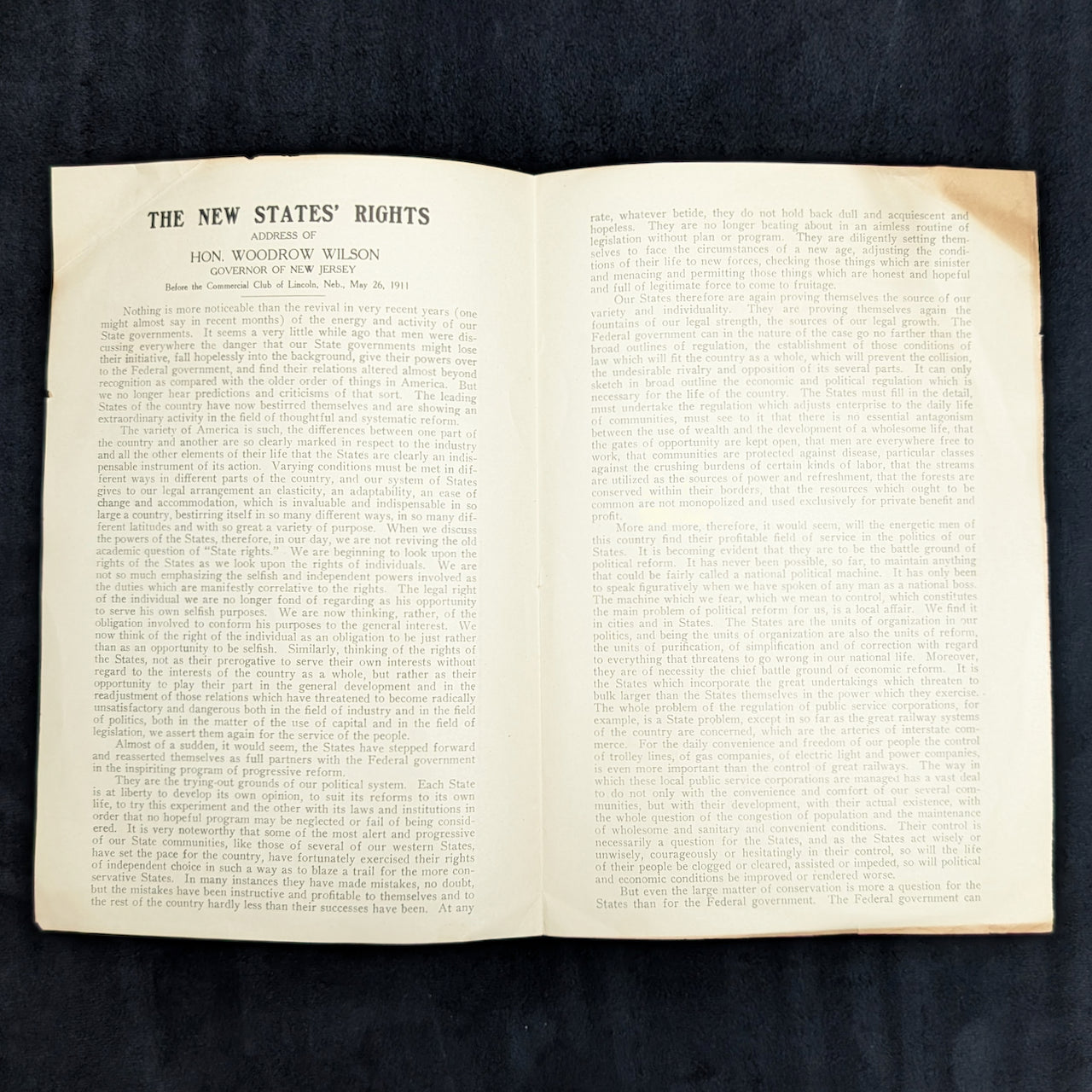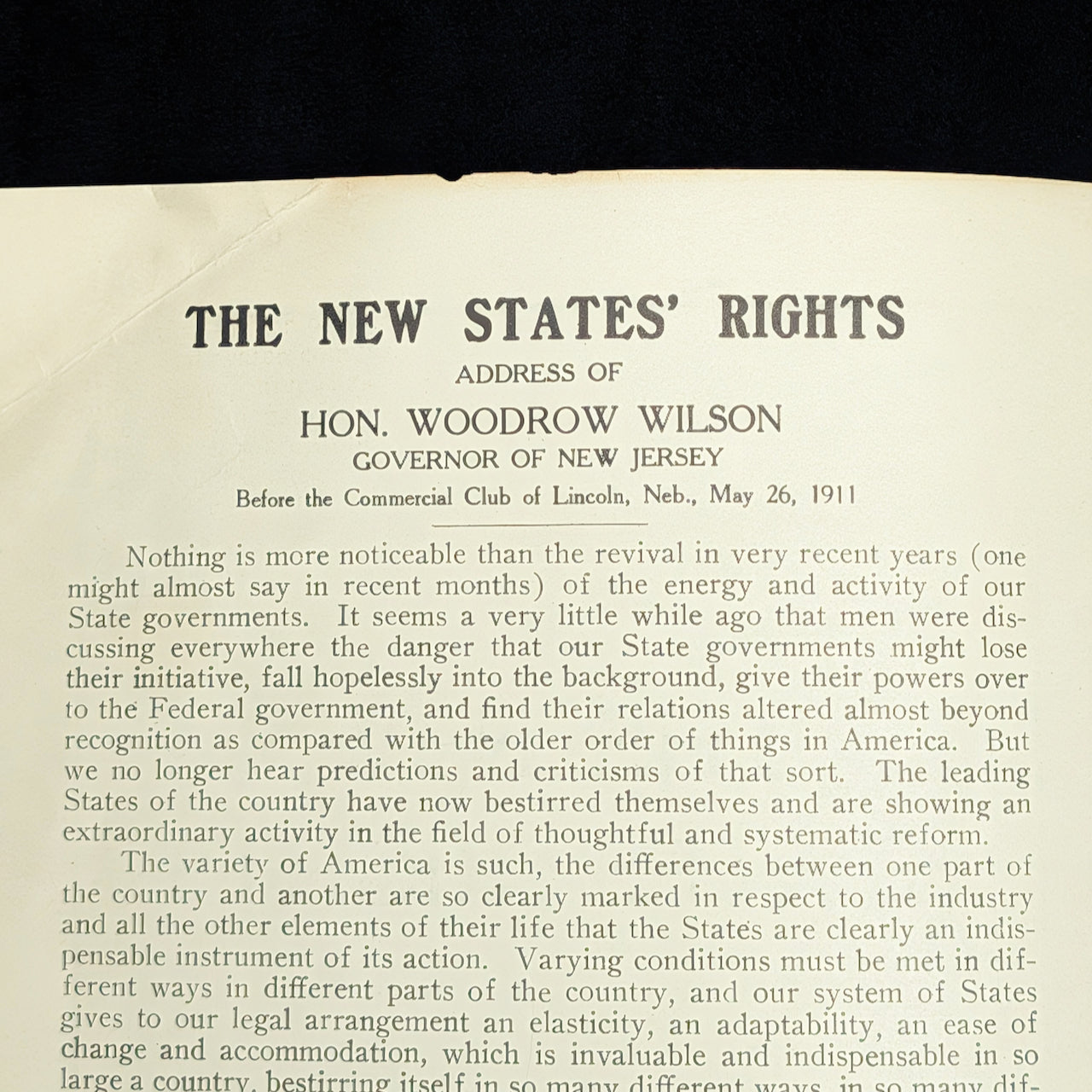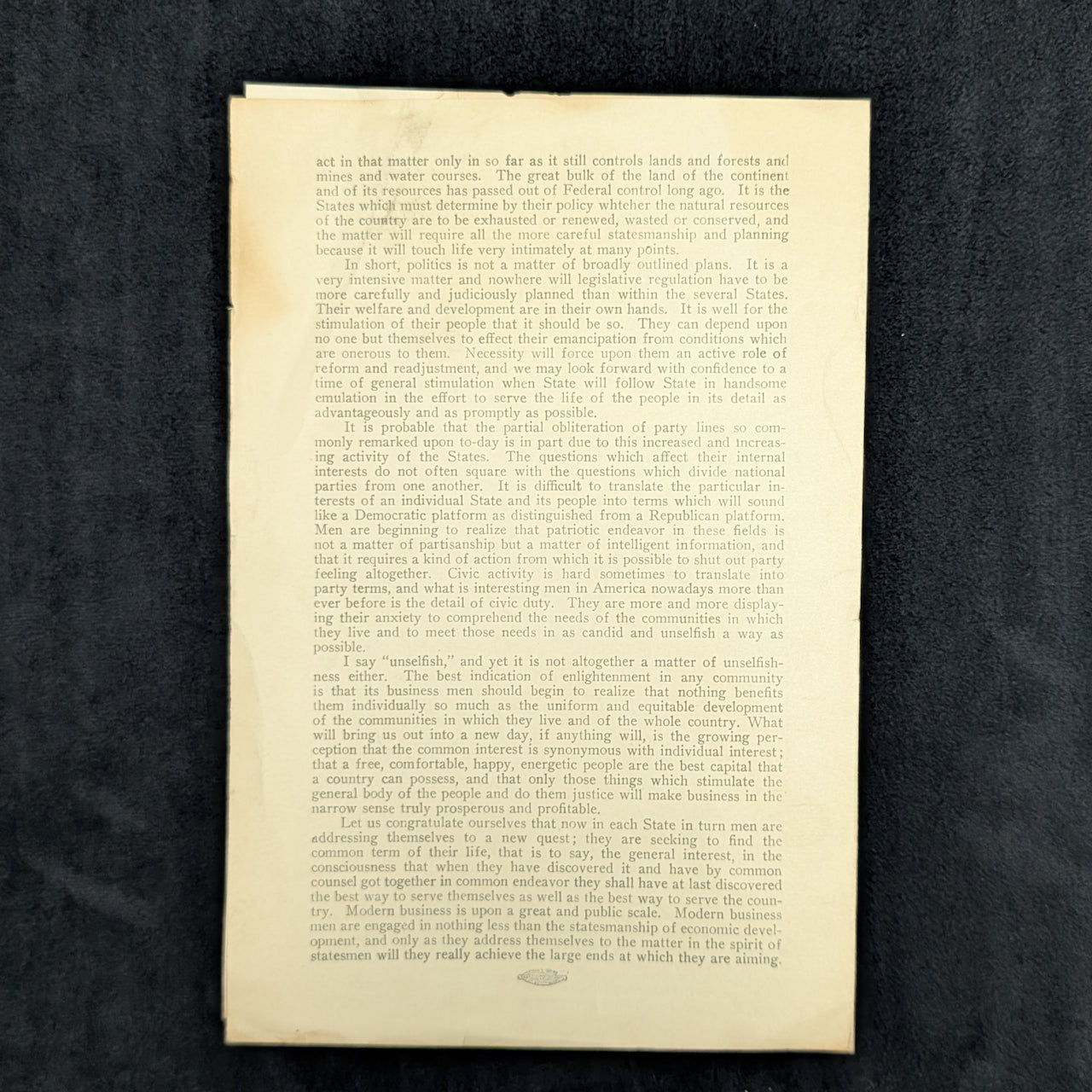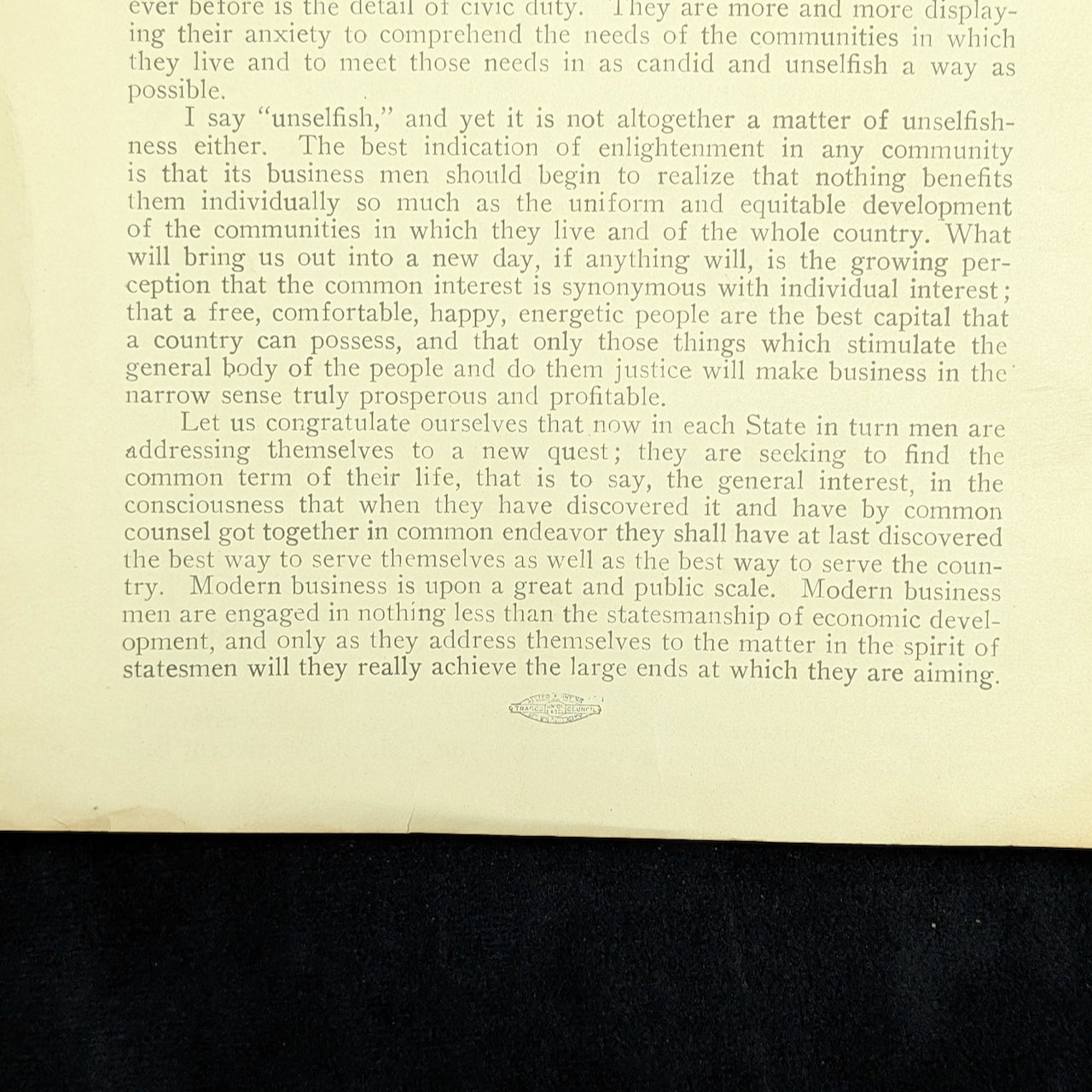
The New States’ Rights, Address Of Hon. Woodrow Wilson, 1911
The New States’ Rights, Address Of Hon. Woodrow Wilson, 1911
Couldn't load pickup availability
The New States’ Rights
Address Of Hon. Woodrow Wilson
Governor Of New Jersey
Before the Commercial Club Of Lincoln, Neb.
May 26, 1911
25M-1-17-12
No. 7
“Nothing is more noticeable than the revival in very recent years (one might almost say in recent months) of the energy and activity of our State governments. It seems a a very little while ago that men were discussing everywhere the danger that our State governments might lose their initiative, fall hopelessly into the background, give their powers over to the Federal government, ad find their relations altered almost beyond recognition as compared with the older order of things in America…”
"The New States' Rights" is a transcript of an address given by Woodrow Wilson, then Governor of New Jersey, before the Commercial Club of Lincoln, Nebraska, on May 26, 1911. In this speech, Wilson likely discusses his views on the evolving concept of states' rights in the early 20th century. Given the historical context of the Progressive Era, he probably addresses how the relationship between state and federal power was changing in response to industrialization, urbanization, and the need for social and economic reforms. He would have likely explored the balance between state autonomy and the necessity of federal intervention to address national issues.
Author and Achievements:
Woodrow Wilson (1856-1924) was the 28th President of the United States, serving from 1913 to 1921. His achievements are numerous and significant:
-
Progressive Reforms: As president, Wilson implemented a series of progressive reforms, including the establishment of the Federal Reserve System, the Federal Trade Commission, and the Clayton Antitrust Act.
- World War I Leadership: He led the United States into World War I, initially maintaining neutrality but ultimately intervening to "make the world safe for democracy."
- Fourteen Points: Wilson articulated his Fourteen Points, a vision for post-war peace and international cooperation, which included the establishment of the League of Nations.
- League of Nations: He was a key advocate for the League of Nations, believing it was essential for preventing future wars, although the U.S. Senate ultimately rejected American membership.
- Intellectual and Academic Background: Prior to his political career, Wilson was an accomplished academic, serving as a professor and president of Princeton University, demonstrating his intellectual prowess and his ability to articulate complex ideas.
It's important to remember that this pamphlet captures a snapshot of Wilson's thinking before he became president. His views on states' rights, as expressed while Governor of New Jersey, are valuable for understanding the evolution of his political philosophy.
Please review each photo carefully for wear and usage. This item came from a local estate sale and was in the previous owner's home office for many years. Send me a message if you have questions or would like additional photos.
